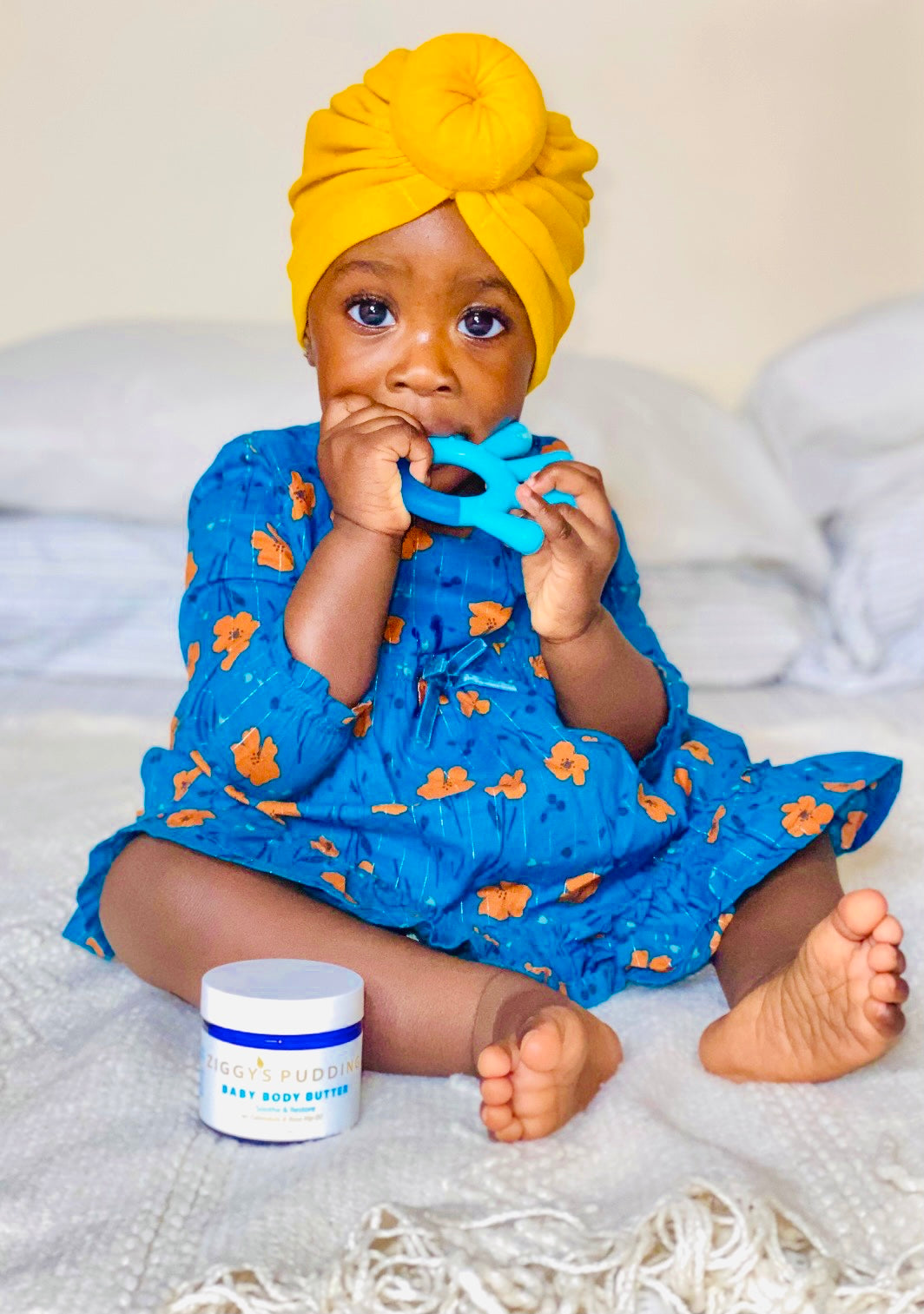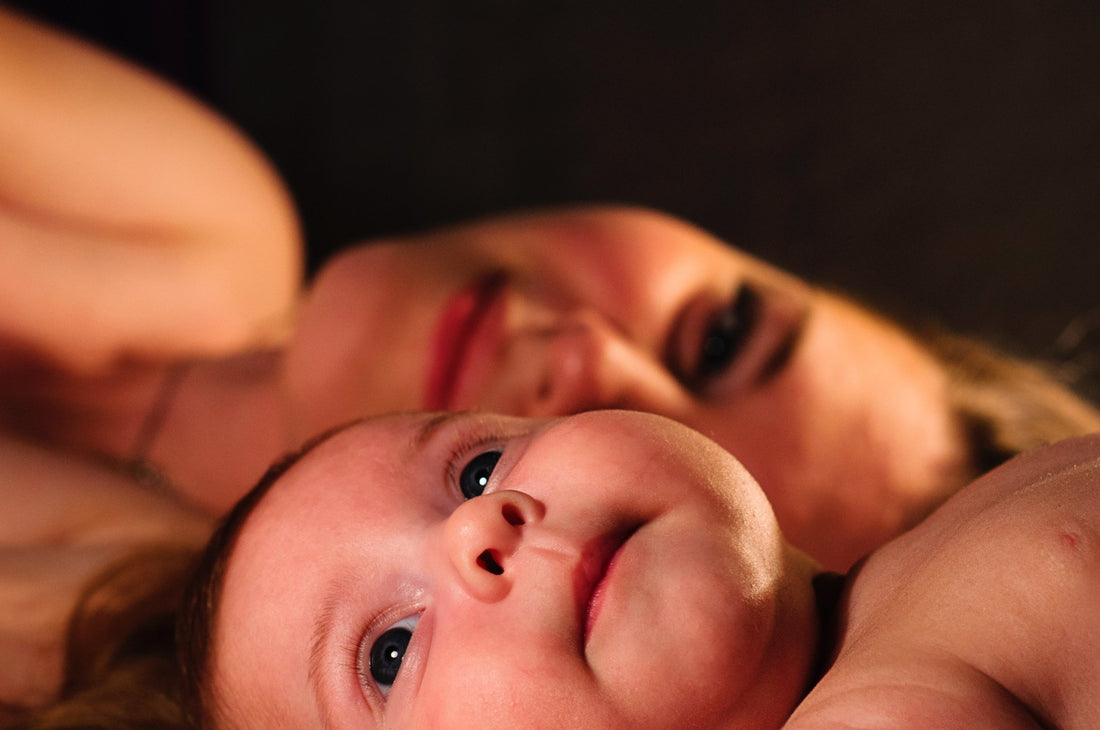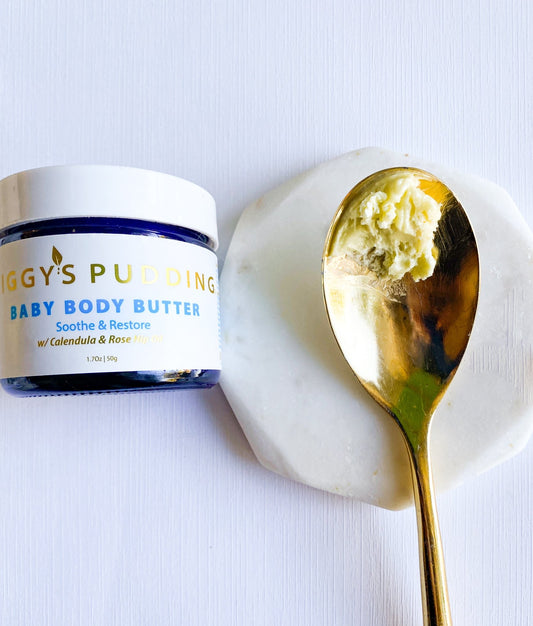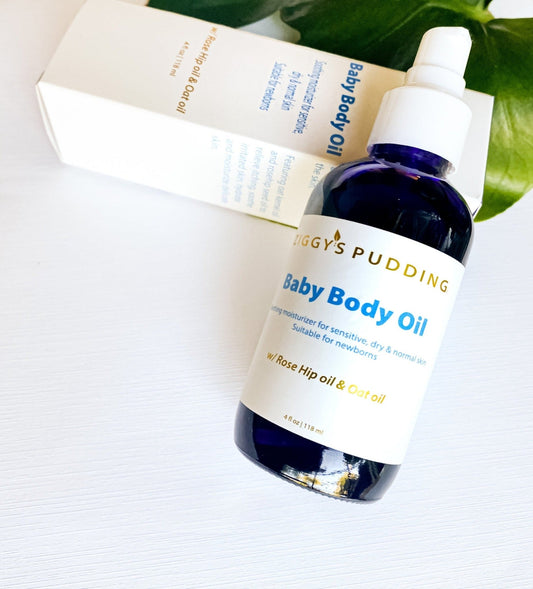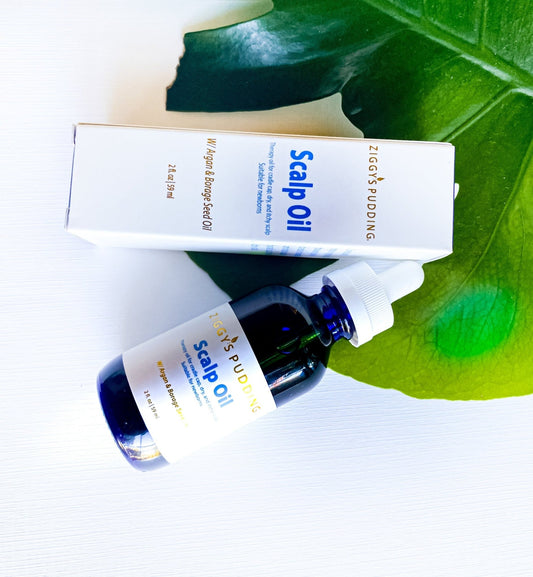I asked myself this same question when I was a new mom. I had a lot of questions, like is it safe, will it irritate their skin, will they cause hormone issues? Trying to traverse the landscape of baby care, let alone baby skincare as a new mom is challenging. When trying to go all natural with your baby’s care, you often run into products that contain essential oils, such as lavender, tea tree, and chamomile. Before I became an organic skincare formulator, I was clueless, did a lot of DIYing, but when it came to essential oils on my baby’s skin, I proceeded cautiously. This blog is here to answer those questions about essential oil safety in babies and provide helpful guidelines on essential oil use.
As a parent, ensuring that essential oils are safe to use is super important. Understanding the risks and following the proper guidelines are crucial when deciding to add essential oils to your baby care routine. This blog presents some important considerations when using essential oils on your baby.
Essential oil safety in Babies

Essential oils are derived from plants and have gained popularity as a natural and therapeutic alternative to synthetic fragrances in skincare. When you pick up naturally scented skincare products for your baby, you may find they contain essential oils. The issue is that your baby's skin is sensitive and has not matured yet. Essential oils can irritate and damage your baby's skin when used improperly. These oils are volatile and should never be used without a carrier oil on your skin, especially your baby's skin.
When researching the use of essential oils, you may find some sources say not to use essential oils on babies under 3 months old. Some sources, like Dr. Axe, suggest waiting until your child is 2 years old to use essential oils on and around them. Small amounts of properly diluted essential oils are considered safe to use on babies 3 months and older.
What are some of the risks of using essential oils on babies?
While essential oils offer potential benefits, it is important to be aware of the potential risks involved when using them on babies.
Some essential oils have been reported to change the way hormones respond in the body called hormone disruptors. Essential oils can cause skin sensitivity and irritation. Babies have more delicate skin compared to adults, and undiluted or improperly diluted essential oils can cause redness, itching, or discomfort. Additionally, babies may develop allergies or sensitivities to certain essential oils, leading to allergic reactions. Some essential oils can be too strong for the baby's respiratory system, causing breathing difficulties or lung irritation.
Is there a safe way to use essential oils on babies?
Here are some guidelines to follow when using essential oils on your baby.
- Always properly dilute essential oils with a carrier oil before using them on your baby's skin. To dilute essential oils, you must use a carrier oil, like coconut oil, sweet almond oil, or jojoba oil.
- When DIYing a product that contains essential oils for your baby's skin, the recommended dilution ratio is 1-2 drops of essential oil to 1 ounce of carrier oil.
- Be careful not to use essential oils on babies younger than 3 months of age.
- Always, always always, perform a patch test when using a product with essential oils in them. You perform a patch test by taking a small amount of product and applying it either to the croak of the elbow or behind the ear and then wait for 24hrs to see if there are any bad reactions.
Tips for Incorporating Essential Oils into Baby Care
When using essential oils on babies, it's important to keep a few additional tips in mind to ensure their safety and maximize the potential benefits:
Age-appropriate essential oils: Some essential oils may be more suitable for older babies, while others are safe for use on newborns. As babies grow, their skin becomes less sensitive, and certain essential oils may be introduced. Research and consult with a healthcare professional to determine which oils are appropriate for your baby's age.
Individual preferences: Just like adults, babies have individual preferences and reactions to scents. Pay attention to your baby's responses and behavior when using essential oils. If you notice signs of discomfort or dislike, discontinue use and try a different oil or method of application.
Avoid overuse: Essential oils are potent, and a little goes a long way. It's important to avoid overusing essential oils on babies. Use them sparingly and only when necessary. Remember, a well-diluted solution is sufficient for reaping the benefits without overwhelming the baby's system.
Consistency and routine: If you decide to incorporate essential oils into your baby's routine, consistency is key. Establishing a routine helps the baby become familiar with the scents and can promote a sense of comfort and relaxation. However, always monitor their reactions and adjust the routine as needed.
Educate yourself: Stay informed about the latest research, safety guidelines, and best practices regarding essential oil use in babies. The field of aromatherapy is constantly evolving, and it's important to keep up-to-date with any new information or recommendations.
Consider alternative methods: Topical application is not the only way to introduce essential oils to babies. Aromatherapy diffusers or gentle inhalation methods can be safer options. However, ensure that the diffusion is done in a well-ventilated area, and use child-friendly diffusers that have appropriate settings for baby-safe aromatherapy.
Listen to your instincts: As a parent, you know your baby best. Trust your instincts when it comes to using essential oils. If something doesn't feel right or if you have concerns, seek advice from healthcare professionals or discontinue use altogether.
What are some safety precautions when using essential oils on babies?
To use essential oils safely on your baby, there are some precautions to keep in mind. Avoiding contact with the eyes, mouth, and nose is crucial to prevent any adverse reactions or respiratory issues. Proper storage and handling of essential oils are important to maintain their potency and prevent accidental ingestion. Choosing high-quality, pure essential oils from reputable brands is essential to avoid contaminants or additives that could harm your baby's health. Additionally, it's important to introduce essential oils gradually, watch for any reactions your baby may be experiencing, and to discontinue using them if any signs of sensitivity or irritation arise.
Conclusion
Incorporating essential oils into your baby's care can be a great way to provide soothing, nurturing experiences for your little one. However, it's crucial to understand the potential risks, follow proper guidelines, and seek professional advice. Dilution, patch testing, and consultation with healthcare professionals are essential steps in ensuring safe essential oil use on babies. Additionally, considering age-appropriate oils, individual preferences, and avoiding overuse are important factors to keep in mind.
Remember, each baby is unique, and what works for one may not work for another. It's important to observe and listen to your baby's cues and adjust your approach to your baby. Essential oils can be safely added to your baby care routine, as long as you follow the guidelines that ensure your baby’s health and well-being.
Read next: The Ultimate beginner's Guide to Essential Oils: Benefits, Uses, and Safety Tips
